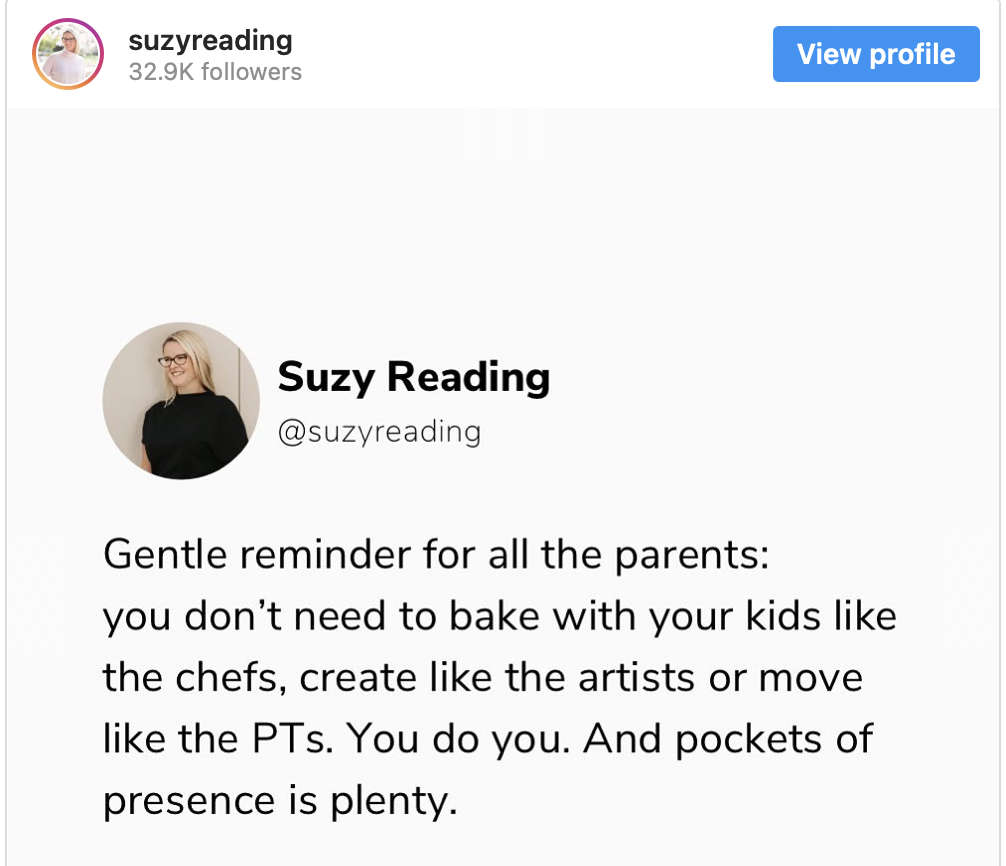
Trying to be a ‘supermum’ is affecting mothers’ mental health, say experts, who tell Lisa Salmon the best way forward.
Mums are driving themselves to exhaustion in the quest to be perfect, according to new research, which suggests the curse of the ‘supermum’ has not gone away.
Nearly two-thirds (63%) of mums surveyed by Bupa UK (bupa.co.uk) say they’re exhausted because of the ‘supermum’ pressure, with one in five (20%) saying it’s affected their mental health.
Almost one in three (31%) mums say the quest for supermum status makes them put on a facade of coping, and 43% agree they struggle to ask even their partner for support. And a worrying 29% of mums have even secretly sought help from a medical professional for mental health concerns.
The main source of pressure is social media – half of mums surveyed said influencers on social media, celebrity posts (48%) and social posts from other mums (47%) made them feel they had to live up to unrealistic standards. So, in a bid to help ease the pressure, Bupa UK has launched a new social campaign #unfilteryourlife, urging women to try not to join in the false reality portrayed on social media.
“Mums are putting themselves under enormous pressure to achieve ‘supermum’ status,” says Dr Naomi Humber, clinical psychologist and head of mental wellbeing at Bupa UK. “This quest for perfection is not just exhausting, but is also impacting their mental wellbeing.
“Being a mum is already a full-time job, often done alongside work, other caring responsibilities and household admin. Consequently, mums are struggling to get any downtime at all. It’s vital for their wellbeing that mothers take guilt-free time out to recharge, to know it’s OK not to be OK, and seek help if they’re struggling.”
Parenting expert Suzie Hayman, a trustee of Family Lives (familylives.org.uk), thinks the pandemic may have increased the pressure on mums. “The pandemic may have heightened the anxiety for some mums – there they were, schooling their children, managing their house and budget and maybe managing work as well, and patently people found it difficult.”


Here, Hayman and Humber suggest what mums can do to beat the supermum pressure…
1. Be analytical
Hayman says looking at social media posts and magazine articles with a critical eye can help ease the pressure on mums. “Whether you’re looking at social media, magazines or TV, ask yourself who’s saying this – particularly if they’re social influencers or celebrities – why are they saying it, is it reasonable and realistic? Even other mums on social media – you always put forward your best side, a bit like using filters on photographs.
“Be far more analytical about why a person is saying something, and what’s in it for them. Are they trying to bolster their own lack of confidence, or are they trying to sell something? Social media influencers make their money from being popular, so they’re selling you themselves, and putting their best side forward to do so.”
And Humber stresses: “When you next look at social media, remember that despite what others choose to share, everyone struggles at times. No-one’s life is perfect, no matter how much it looks that way from the outside.”
2. Give yourself some downtime

The Bupa UK research found 69% of mums feel guilty about taking time for themselves and almost half (49%) agree they don’t feel they deserve it. And even when they can have a break, 81% of mums opt to do chores rather than relax.
Humber says: “Research shows taking time out to unwind is very important for your health and wellbeing. Building time into your day to relax will help you to have the energy to support your family.”
And Hayman points out that happy mums means happy children too. “If for no other reason than your child’s sake, you need to look after yourself,” she insists. “But you should be looking after yourself for you, too – you deserve just as much as you’re giving to your family.
“If you put yourself under pressure all the time, you’re going to collapse. If you’re rested, relaxed, confident and happy, you can then give to all the people around you.”
The research found meditation, mindfulness and exercise were often used as coping mechanisms by mums, and Hayman stresses: “Do whatever makes you happy – it might be watching TV, listening to music, or going for a run. Fit it into your timetable.”
3. Spread the chores
Hayman advises parents to sit down with their family and work out what needs to be done to keep the home going, and what everyone can do.
“Share out the chores that make the house run,” she says. “Children from a very young age should be expected to pull their weight in the home – after all, when they’re adults, if they haven’t learned to manage these things, they’re going to be pretty rubbish at it. Spreading the chores is incredibly important – share the load.”
4. Communicate
Communication is key, stress both experts. “Instead of holding it in when you’re tired and miserable, until you suddenly explode, communicate that you’re having a rough day and ask everyone to be kind to you,” suggests Hayman.
The research found talking with other mums, using online forums, and joining parenting groups, also helps mums share their burden.
“If you feel like your mental health is suffering, or you’ve sought professional help, try to tell someone you trust,” advises Humber. “Set aside time to discuss how you’re feeling and what you need. Otherwise, they may not even guess you’re struggling.”
5. Remember you’re ‘good enough’


You’re not aiming for perfection, stresses Hayman. “Perfection means you can do everything effortlessly and wonderfully, and no-one’s like that,” she points out. “We all have particular skills, so recognise them and be pleased about it, and recognise the things you’re not so good at. Accept we can’t all do everything and go for ‘good enough’ – that’s all you need to be.”
And Humber says mums should try to be kind to themselves, insisting: “You simply cannot do everything and be everything to all people, and it’s OK to ‘drop the ball’ sometimes.”

 Five Incredible Spas Around the World
Five Incredible Spas Around the World
 Five Fab Wellbeing UK Destinations Ideal in January
Five Fab Wellbeing UK Destinations Ideal in January
 Five Weird Wellbeing Foods Around The World
Five Weird Wellbeing Foods Around The World
 Five Hilarious New Year's Resolutions Worth Trying
Five Hilarious New Year's Resolutions Worth Trying
 Five Alternative Christmas Dinners For Turkey Haters
Five Alternative Christmas Dinners For Turkey Haters